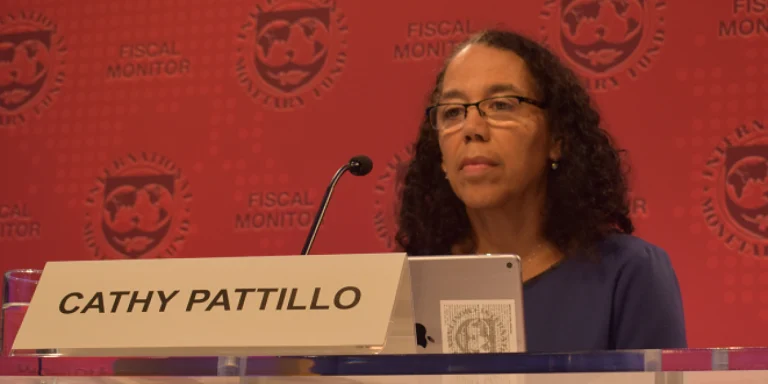Catherine Pattillo, Deputy Director of the IMF’s African Department, has emphasized the need for African policymakers to strike a delicate balance between maintaining macroeconomic stability and investing in critical development sectors such as education, healthcare, and social protection.
In an interview with ARISE NEWS on Monday, Pattillo discussed the IMF’s revised growth forecast for Africa, which has been upgraded to 4.2% for 2025, a positive adjustment from previous projections. She underscored the region’s growth potential, despite the persistent challenges of inflation, high debt levels, and the need for structural reforms.
“The forecast upgrade is an important milestone,” Pattillo explained, noting that the IMF revises its growth projections twice a year. “It involves a detailed process where a team of 6 to 10 analysts from our African department works closely with country teams, leveraging data from a wide range of sources—everything from national statistics to market data. This process ensures that we produce a comprehensive and valuable report, which is made publicly available on our website.”
Turning to the challenges facing many sub-Saharan African countries, Pattillo highlighted the difficulty of balancing economic stabilization with urgent development needs. “Countries are still navigating tough conditions. Policymakers are focused on reducing inflation, stabilizing public debt, and building foreign exchange reserves. But at the same time, they must prioritize essential spending on education, health, and social protection to address the pressing needs of growing populations,” she said. “This balancing act is critical to sustaining long-term growth.”
Pattillo also emphasized the importance of implementing reforms in a socially and politically acceptable way. “Reforms are often difficult in challenging times, but they are essential for long-term growth. Policymakers must ensure that these reforms are not only necessary but also politically feasible and beneficial for the broader population,” she said.
Regarding the IMF’s more optimistic outlook for 2025, Pattillo noted several factors contributing to the anticipated improvement. “This year, Africa faced several challenges, including climate shocks like flooding in Nigeria, droughts in Southern Africa, and disruptions to hydropower and food security. Additionally, high interest rates and ongoing conflicts have added to the region’s economic difficulties,” she explained. “However, by 2025, we expect these challenges to ease. For example, if the drought in Southern Africa improves, we could see stronger growth in that region, and larger economies like South Africa may benefit from post-election recovery and improved energy availability.”
On the issue of inflation, Pattillo acknowledged that while global inflationary pressures have eased somewhat, inflation remains a significant challenge for many African countries. “Post-pandemic inflation has been a global issue, and central banks worldwide have responded by raising interest rates. While this has helped contain inflation in many African countries, a third of them are still experiencing inflation in the double digits,” she said. “This persistent inflation is a headwind to growth, as it reduces people’s confidence to save and invest, while the high cost of living—especially food prices—remains a burden on many households.”
Addressing Africa’s rising debt, Pattillo reassured that while many countries face high debt levels, the region is not experiencing a systemic debt crisis. “Debt is a significant challenge, and borrowing costs have risen sharply, putting a squeeze on resources available for development spending. However, we are not seeing a widespread debt crisis at this time. The key issue is liquidity, and countries need to manage their debt servicing obligations carefully to ensure they have the resources necessary for investment in critical sectors,” she said.
Finally, Pattillo underscored the importance of education—especially in STEM (Science, Technology, Engineering, and Mathematics) fields—as a cornerstone of Africa’s long-term economic transformation. “Africa’s youth population is set to become the largest in the world by 2030, presenting a tremendous opportunity for economic growth,” she said. “But to capitalize on this demographic dividend, Africa needs to invest in education, particularly in STEM disciplines, to equip young people with the skills needed for the jobs of the future, including in healthcare, engineering, IT, and AI. Unfortunately, Africa lags behind in STEM education, and this gap must be addressed to unlock the continent’s full potential.”
By focusing on these critical areas—macroeconomic stability, development spending, debt management, and education—Pattillo believes Africa can overcome its current challenges and harness its vast growth potential for sustainable economic transformation.

